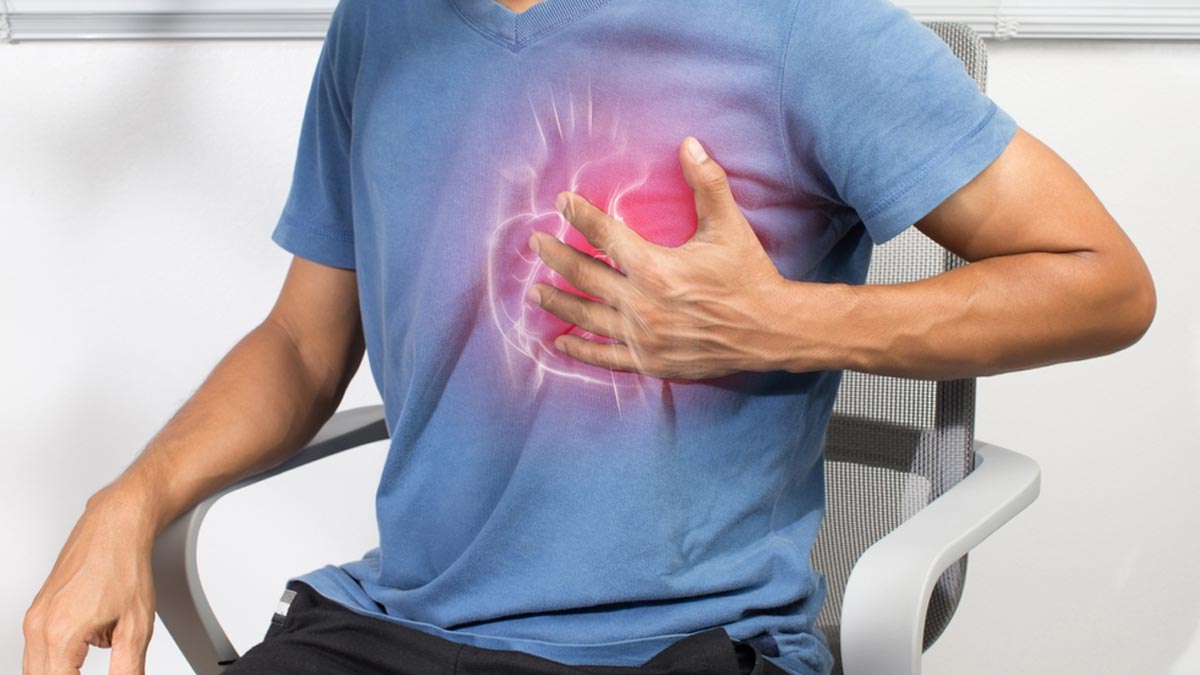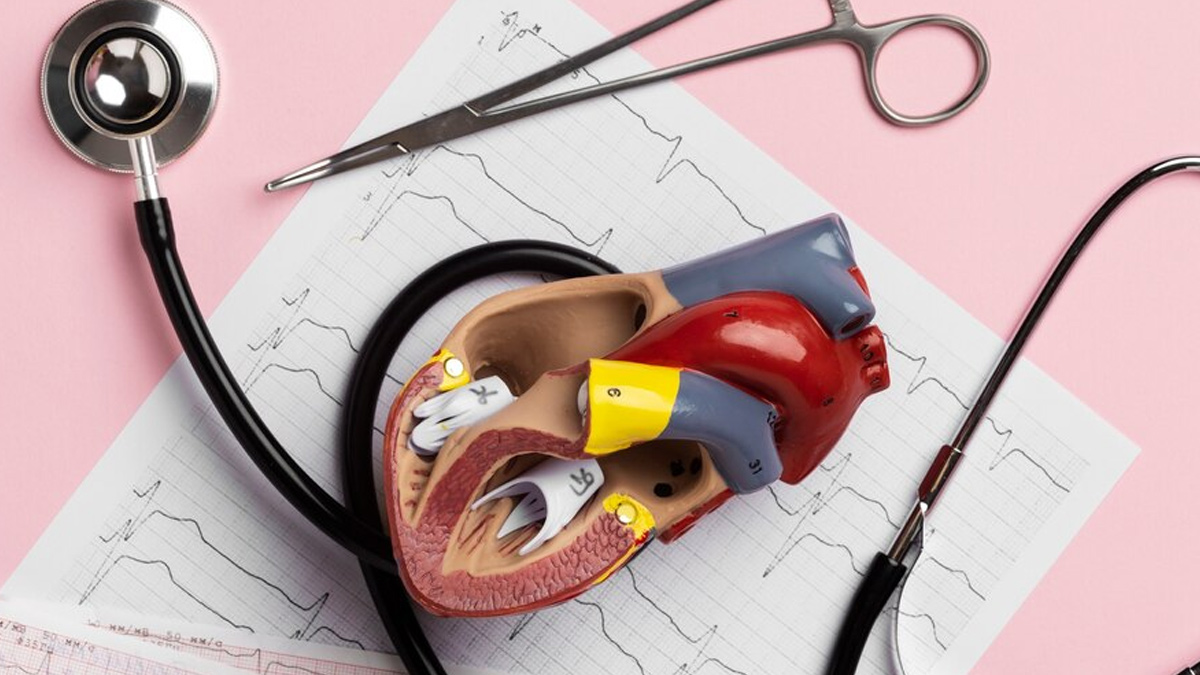
Have you ever experienced symptoms where your heart beats irregularly, either too fast, too slow, or with an irregular rhythm? This can be a sign of a health condition known as arrhythmia and is caused by problems with the electrical signals that control the heart's pumping action. We spoke to Dr Kumar Kenchappa, Consultant – Interventional Cardiologist, Manipal Hospital, Hebbal, Bengaluru, who listed seven types of arrhythmia, their symptoms, causes, and risk factors.
Table of Content:-
According to the Frontiers in Physiology, heart failure and cardiac arrhythmias are intricately connected in a complex relationship of cause and effect. Cardiac arrhythmias contribute to left ventricular systolic dysfunction by causing rapid ventricular rates that disrupt the normal output of both the atria and ventricles. Also, heart failure independently increases the risk of developing arrhythmias due to its harmful effects on atrial remodelling.
Types Of Arrhythmias

1. Atrial Fibrillation (AFib)
“Atrial fibrillation, or AFib, is the most common arrhythmia, characterised by rapid and irregular beating of the atria. In AFib, the heart rate can increase to as high as 350 beats per minute,” said Dr Kenchappa.
Progressing age, high or uncontrolled blood pressure, family history of AFib, obesity, coronary artery disease, valvular heart disease, and diabetes are the identified risk factors for AFib. Affected individuals often experience palpitations, chest discomfort, shortness of breath, fatigue, and dizziness.
Also Read: Problem With Heart Rate? Expert Explains Arrhythmia, Its Causes, And Preventive Tips
2. Atrial Flutter
“Atrial flutter is similar to AFib, but tends to have a more regular rhythm and may increase to 250 bpm.
The risk factors of atrial flutter are similar to AFib. A history of a previous heart attack or heart surgery, and chronic lung disease may also cause atrial flutter,” added Dr Kenchappa.
Symptoms are akin to those of AFib, including palpitations and fatigue. Many individuals with atrial flutter tend to develop AFib over time. It also makes the affected individual prone to stroke and heart failure.
3. Supraventricular Tachycardia (SVT)
.jpg)
SVT involves abnormally fast heart rates usually caused by an abnormal electrical circuit or rapidly firing cells, originating above the heart's ventricles. Its causes include stress, excessive caffeine or alcohol consumption, and thyroid disease.
“Symptoms include a rapid heartbeat, chest pain, pounding of the chest, light-headedness, and breathlessness on exertion. SVT episodes are not life-threatening but they cause significant distress as they may last anywhere from a few seconds to several hours,” added Dr Kenchappa.
Also Read: Cardiac Resynchronised Therapy Is Life-Saver for Arrhythmia Patients, Read Details
4. Wolff-Parkinson-White (WPW) Syndrome
WPW Syndrome is a congenital condition characterised by an extra electrical pathway between the atria and ventricles, leading to episodes of fast heart rhythm or tachycardia. The condition is potentially fatal and may present with symptoms including palpitations, dizziness, shortness of breath, and sometimes chest pain.
5. Sick Sinus Syndrome (SSS)
Sick Sinus Syndrome involves dysfunction of the sinus node, the heart's natural pacemaker, leading to irregular rhythms including bradycardia and tachycardia.
Dr Kenchappa said, “Its causes include degenerative changes in the heart's electrical system and scarring from previous heart surgery. Age, underlying heart conditions, and previous heart surgery are primary risk factors. Symptoms can manifest as fatigue, dizziness, fainting, and palpitations.”
6. Premature Ventricular Contractions (PVCs)
“Premature Ventricular Contractions (PVCs) are additional beats originating within the ventricles, commonly resulting in a fluttering sensation. They can vary in frequency and may occur multiple times throughout the day,” said Dr Kenchappa. The causes of PVCs include factors, such as stress, caffeine intake, underlying heart issues, and imbalances in electrolytes. Symptoms often include palpitations and the sensation of a skipped heartbeat.
7. Ventricular Fibrillation (VFib) and ventricular tachycardia
VFib and ventricular tachycardia are arrhythmias that affect the lower heart chambers, causing the ventricles to quiver ineffectively and potentially leading to the cessation of the heartbeat. It often follows a heart attack or occurs in patients with severe heart disease.
Symptoms are sudden collapse and loss of consciousness. VFib can be fatal if not treated as an emergency. Ventricular Tachycardia (VT) arises from abnormal electrical signals in the ventricles. Causes often include ischemic heart disease and cardiomyopathy. Its symptoms are palpitations, dizziness, and potential loss of consciousness.
Bottomline
Dr Kenchappa concluded, “Regular check-ups and a heart-healthy lifestyle are vital components in managing these conditions. If you experience any symptoms, seeking prompt medical attention can mitigate risks and improve outcomes.”
[Disclaimer: This article contains information provided by an expert and is for informational purposes only. Hence, we advise you to consult your own professional if you are dealing with any health issues to avoid complications.]
Also watch this video
Read Next
Heart Attacks and Blood Pressure: Expert Explains Blood Pressure Changes During a Heart Attack
How we keep this article up to date:
We work with experts and keep a close eye on the latest in health and wellness. Whenever there is a new research or helpful information, we update our articles with accurate and useful advice.
Current Version